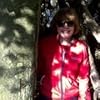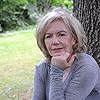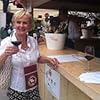Penny
asked
Emma Fraser:
You mentioned that the lady in When the Dawn Breaks who set up the field hospital in Russia was based on a real character - how did you find out about her and how did you research this part of the story?
Emma Fraser
Hi Penny
Firstly, apologies for not getting back to you sooner- but I have been away and without internet access. Now, to answer your question, I assume you are talking about Dr Elsie Inglis who appears as herself in my book? I came across her when I was researching the first women doctors in Scotland. The name was familiar to me from my time in Edinburgh when I was training as a nurse - there was a hospital named after her- but I knew nothing about the woman herself. As soon as I read about her involvement with the Scottish Women's Hospitals, I knew I had my story. I was stunned that I knew nothing about these women and their work during the first world war. I used both the National library in Edinburgh and the Mitchell in Glasgow to research the stories of the Scottish Women's Hospitals, finding several books written not long after the war finished about their experiences in France, Serbia and Greece during the war. I also discovered they were far from the only group of women who offered their services although they were one of the units with the highest reputation. As part of my research I visited the library of the Royal College of Surgeons in Edinburgh (the site of many a stand off between the first women medical students and their male counterparts btw) and while there came across the diaries of Ishabel Ross from Skye (hence part of the reason for using Skye and the name Isabel!) who was with the Scottish Women's Hospital when they established a unit in Macedonia. Ishabel Ross kept a fabulous diary - which was part of the college's collection and even included a detailed drawing of the camp where she worked. There was so much actual material about these women and women like them (I mention one of the other units in When the Dawn Breaks) and I really had to keep my focus. I would loved to have used every bit of what I found out in my story, but then I would have been writing non- fiction! One last point - believe me when I say nothing in my book about the courage and resourcefulness of these women is exaggerated. Dr Elsie Inglis at the very least, deserves to be far better known than she is.
Firstly, apologies for not getting back to you sooner- but I have been away and without internet access. Now, to answer your question, I assume you are talking about Dr Elsie Inglis who appears as herself in my book? I came across her when I was researching the first women doctors in Scotland. The name was familiar to me from my time in Edinburgh when I was training as a nurse - there was a hospital named after her- but I knew nothing about the woman herself. As soon as I read about her involvement with the Scottish Women's Hospitals, I knew I had my story. I was stunned that I knew nothing about these women and their work during the first world war. I used both the National library in Edinburgh and the Mitchell in Glasgow to research the stories of the Scottish Women's Hospitals, finding several books written not long after the war finished about their experiences in France, Serbia and Greece during the war. I also discovered they were far from the only group of women who offered their services although they were one of the units with the highest reputation. As part of my research I visited the library of the Royal College of Surgeons in Edinburgh (the site of many a stand off between the first women medical students and their male counterparts btw) and while there came across the diaries of Ishabel Ross from Skye (hence part of the reason for using Skye and the name Isabel!) who was with the Scottish Women's Hospital when they established a unit in Macedonia. Ishabel Ross kept a fabulous diary - which was part of the college's collection and even included a detailed drawing of the camp where she worked. There was so much actual material about these women and women like them (I mention one of the other units in When the Dawn Breaks) and I really had to keep my focus. I would loved to have used every bit of what I found out in my story, but then I would have been writing non- fiction! One last point - believe me when I say nothing in my book about the courage and resourcefulness of these women is exaggerated. Dr Elsie Inglis at the very least, deserves to be far better known than she is.
More Answered Questions
Matthew
asked
Emma Fraser:
Hi Emma! When you write your books, do you already know the endings when you begin, or do you let it unfold as you write? I'm trying to write mysteries and am not sure if I should have it all thought out first, or should start with a broad idea and go with the writing.... any advice is appreciated!
Orna O'Reilly
asked
Emma Fraser:
As the island of Skye is so dramatically featured in your book, did you spend much time there doing research? Or was it a favourite place to visit? You describe it wonderfully; makes me want to visit! Also, the two women characters really spring to life as strong and ambitious, yet very feminine. Are they based on women you know, or have known, personally?
Emma Fraser
48 followers
About Goodreads Q&A
Ask and answer questions about books!
You can pose questions to the Goodreads community with Reader Q&A, or ask your favorite author a question with Ask the Author.
See Featured Authors Answering Questions
Learn more





